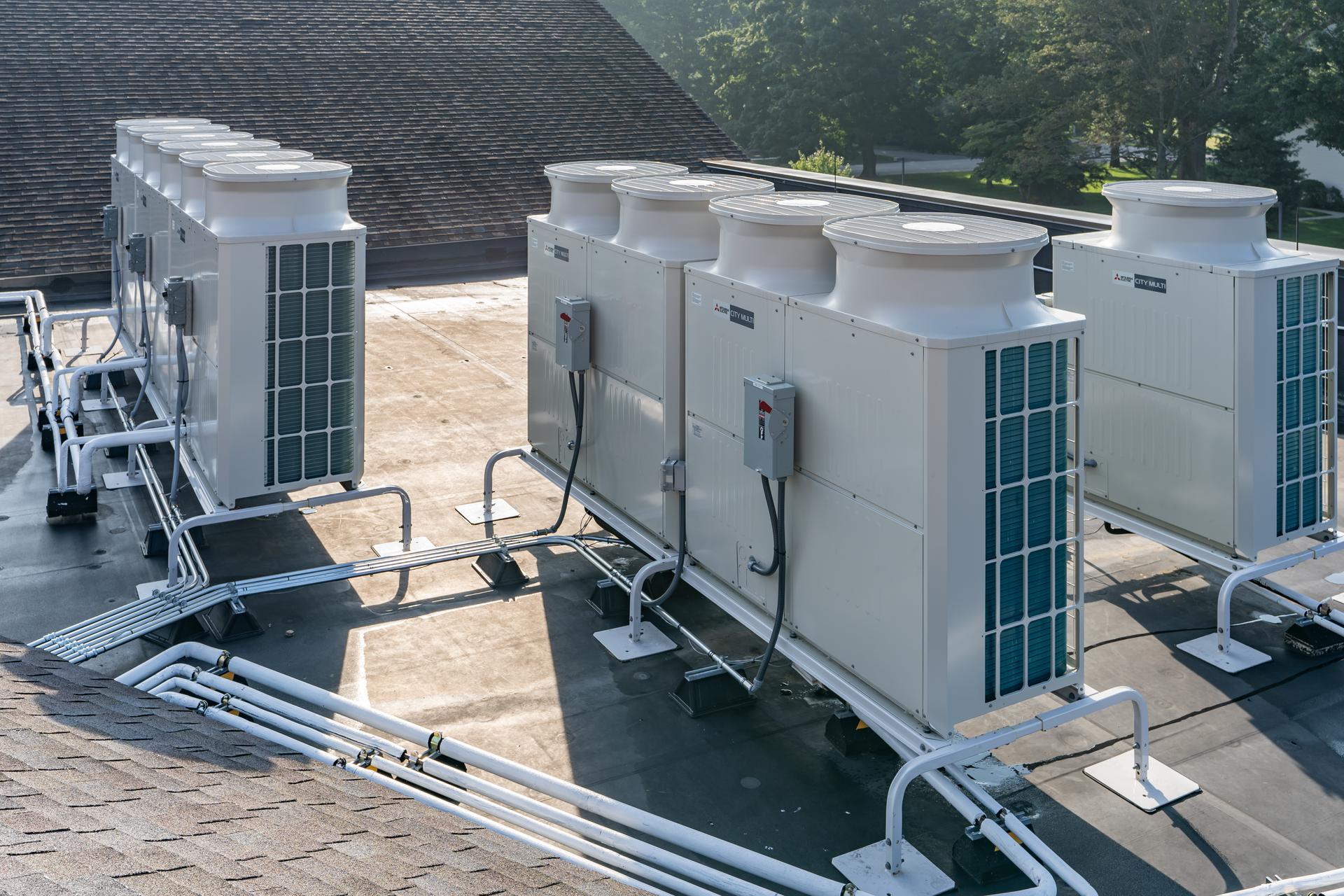
In the quest for energy efficiency and sustainability, rooftop model HVAC (Heating, Ventilation, and Air Conditioning) systems stand out as exemplary solutions for commercial and industrial buildings. These systems, positioned atop buildings, offer numerous advantages over traditional indoor HVAC units, including significant energy savings and reduced utility costs. Let’s explore how a rooftop HVAC system achieves these efficiencies and contributes to long-term cost savings for building owners.
1. Optimal Air Distribution:
Rooftop model HVAC systems are strategically positioned to provide optimal air distribution throughout the building. By locating the HVAC equipment on the roof, these systems can deliver conditioned air directly to the desired zones with minimal ductwork and airflow resistance. This efficient air distribution reduces energy consumption by minimizing the workload on the HVAC system and ensuring that conditioned air reaches its intended destination effectively.
2. Enhanced System Efficiency:
Rooftop model HVAC systems are designed with efficiency in mind. These systems typically feature high-efficiency components, including compressors, fans, and motors, that are optimized for performance and energy savings. Additionally, rooftop units are often equipped with variable-speed drives and advanced control systems that allow for precise modulation of airflow and temperature, matching the heating and cooling load to the building’s requirements more accurately.
3. Reduced Heat Loss and Gain:
By locating HVAC equipment on the roof, rooftop model systems minimize heat loss and gain associated with traditional indoor units. Indoor HVAC units are often installed in conditioned spaces, where they are susceptible to heat transfer through walls, ceilings, and floors. In contrast, rooftop units are exposed to outdoor ambient conditions, reducing the need for additional heating or cooling to compensate for thermal losses or gains, thereby conserving energy and lowering utility costs.
4. Economical Zoning Options:
Rooftop model HVAC systems offer flexible zoning options that allow building owners to customize temperature control based on occupancy patterns and usage requirements. By dividing the building into multiple zones and independently controlling the HVAC settings for each zone, rooftop units can optimize energy usage by delivering heating or cooling only to occupied areas, rather than conditioning the entire building space unnecessarily.
5. Integration with Energy Management Systems:
According to HVAC commercial companies, many rooftop model HVAC systems are compatible with advanced energy management systems (EMS) that enable centralized monitoring, control, and optimization of building energy consumption. EMS platforms utilize real-time data and analytics to identify opportunities for energy savings, such as adjusting temperature setpoints, optimizing equipment schedules, and implementing demand response strategies, ultimately reducing utility costs and improving overall system efficiency.
6. Minimal Ductwork Losses:
Rooftop model HVAC systems typically require shorter ductwork runs compared to indoor units, resulting in fewer ductwork losses and improved energy efficiency. With less ductwork to traverse, rooftop units can deliver conditioned air more efficiently to building spaces, minimizing air leakage, pressure drop, and energy waste associated with long duct runs and complex duct configurations.
7. Modular Design for Scalability:
Rooftop model HVAC systems are often designed with a modular configuration, allowing for scalability and flexibility to accommodate changing building needs over time. Building owners can easily add or remove rooftop units as occupancy levels fluctuate or building usage evolves, ensuring that HVAC capacity aligns with actual demand and avoiding the energy waste associated with oversized or undersized systems.
By delivering all the benefits mentioned above, rooftop units deliver tangible energy savings and contribute to sustainable building practices for a greener future. Talk to the experts to sign up for our HVAC service contracts today.
